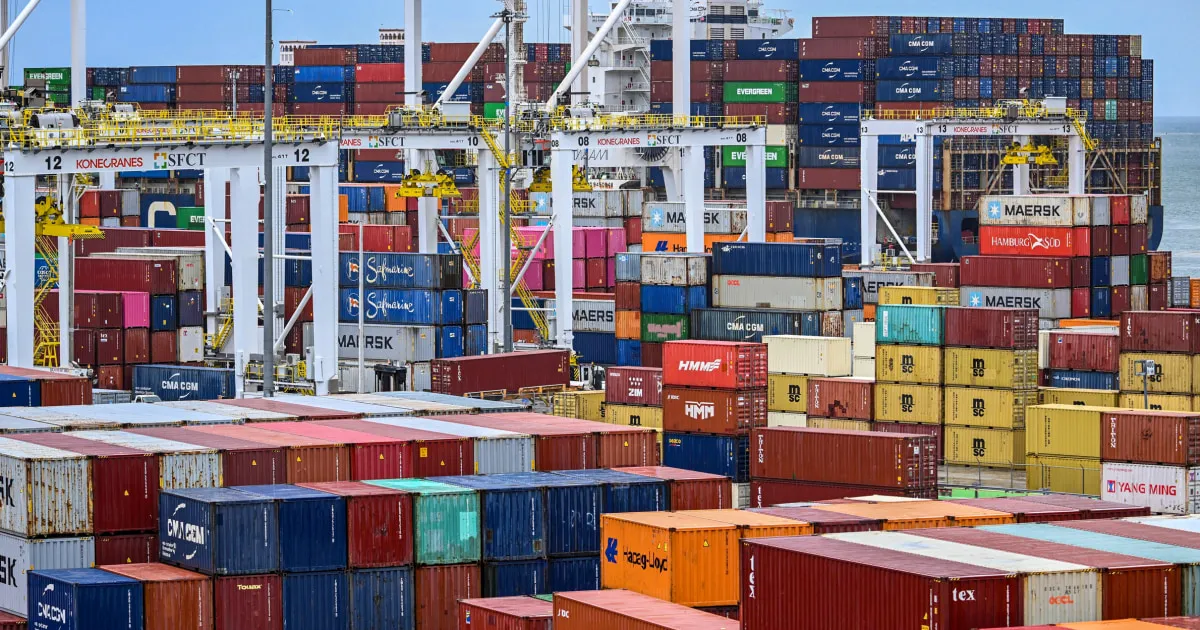
The de minimis exemption, a little-known provision in trade law, has significantly impacted businesses worldwide. This exemption, which allowed shipments valued under $800 to enter the U.S. duty-free, officially concluded on Friday due to an executive order by President Donald Trump. For nearly ten years, this policy enabled companies, including major retailers such as Tapestry and Lululemon, to import goods with minimal oversight. However, following recent changes, all shipments will now be subject to tariffs and processed similarly to larger packages.
In May, Trump eliminated the de minimis exemption for goods originating from China and Hong Kong, subsequently extending this policy to all countries on July 30. He labeled the exemption a “catastrophic loophole” that had been exploited to bypass tariffs and introduce “unsafe or below-market” products into the U.S. While the exemption was originally set to expire in July 2027 as part of broader legislation passed by Congress, Trump's executive order has accelerated its end, leaving businesses, customs officials, and postal services with limited time to adapt.
Experts predict that the termination of the de minimis exemption will lead to significant turmoil in global supply chains. Lynlee Brown, a partner in EY's global trade division, stated, “The ending of that under-$800-per-person-per-day rule is likely to cause pandemonium.” Companies must now contend with financial, operational, and compliance challenges as they adjust their supply chains, which were previously structured around the exemption.
The immediate effects of this policy shift have already been felt, with supply chains from France to Singapore experiencing disruptions. Various postal services have temporarily halted shipments to the U.S. to update their compliance systems, prompting businesses to reevaluate not just their supply chains but also their overall business strategies. “This is a big change for operating models for companies,” Brown explained, emphasizing the wide-reaching implications for both online and brick-and-mortar retailers.
As U.S. consumers grapple with rising inflation and high interest rates, the end of the de minimis exemption is expected to exacerbate the situation. A 2025 study by Pablo Fajgelbaum and Amit Khandelwal for the National Bureau of Economic Research estimated that the elimination of this exemption could cost American consumers at least $10.9 billion—or about $136 per family. Low-income and minority consumers may feel the most significant impact, as they often rely on affordable imported goods.
The de minimis exemption has gained notoriety primarily through the rise of Chinese e-commerce giants like Shein and Temu. The volume of shipments utilizing this exemption surged from 134 million in 2015 to over 1.36 billion in 2024. U.S. Customs and Border Protection (CBP) reported processing over 4 million de minimis shipments daily, with more than 60% originating from China. However, the lack of scrutiny on these shipments has raised concerns about safety and legality, prompting both the Trump and Biden administrations to call for its curtailment.
The Biden administration particularly highlighted how the exemption facilitated the importation of goods produced with forced labor, which violates the Uyghur Forced Labor Protection Act. With reports indicating that 90% of cargo seizures in fiscal 2024 originated from de minimis shipments, it’s clear that the exemption has been a point of contention in trade discussions.
The end of the de minimis exemption is set to hit online marketplaces like Etsy, eBay, and Shopify particularly hard. Small businesses that have relied on this provision to keep costs low may be forced to raise prices or limit their offerings. American consumers, accustomed to affordable international purchases, could face higher costs and a reduced selection of goods. Many small sellers, especially those from countries like Canada and the UK, are temporarily halting shipments to the U.S. as they reassess their business models in light of the new tariffs.
Blair Nadeau, a Canadian bridal accessories seller, expressed her distress, stating, “This is devastating on so many levels, and millions of small businesses worldwide are now having their careers, passions, and livelihoods threatened.” The loss of the de minimis exemption is indeed seen as a “lifeline” for many small enterprises that depend on cross-border trade.
As the retail landscape changes, major players like Amazon and Walmart may gain market share as consumers seek alternatives amidst rising prices. These companies have established fulfillment operations in the U.S., allowing them to manage inventory and shipping more efficiently than smaller retailers. Shein and Temu, which previously capitalized on the de minimis exemption, are now adapting their business models by increasing their presence in U.S. warehouses to mitigate the impact of the new tariffs.
The end of the de minimis exemption marks a significant shift in U.S. trade policy, with ripple effects expected across various sectors. As businesses adjust to these new regulations, consumers will likely bear the brunt of increased costs and limited choices in the marketplace.